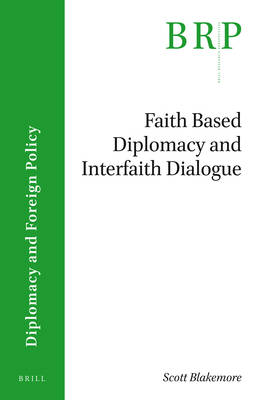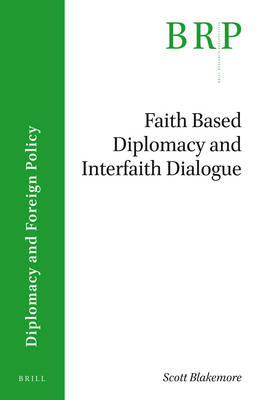
- Afhalen na 1 uur in een winkel met voorraad
- Gratis thuislevering in België vanaf € 30
- Ruim aanbod met 7 miljoen producten
- Afhalen na 1 uur in een winkel met voorraad
- Gratis thuislevering in België vanaf € 30
- Ruim aanbod met 7 miljoen producten
Zoeken
Omschrijving
Scholars are seeking to identify how to constructively integrate faith into diplomacy. Proponents of faith-based diplomacy recognise that incorporating faith into peacemaking activities assists in managing identity-based conflict and religiously motivated violence in the contemporary international system. A promising strategy within the scope of faith-based diplomacy is interfaith dialogue. The study and practice of interfaith dialogue has been reinvigorated since the advent of 9/11, and yet the link between interfaith dialogue and diplomacy remains underdeveloped. The cases of Indonesia and the United States present lessons on how states can effectively use interfaith dialogue to achieve policy objectives, while recognising that some policies are detrimental to achieving diplomatic goals. This paper seeks to provide some framework for bringing interfaith dialogue into the scope of diplomacy by illuminating how faith-based diplomacy and interfaith dialogue can be innovative diplomatic perspectives useful in addressing contemporary global issues.
Specificaties
Betrokkenen
- Auteur(s):
- Uitgeverij:
Inhoud
- Aantal bladzijden:
- 130
- Taal:
- Engels
- Reeks:
Eigenschappen
- Productcode (EAN):
- 9789004408920
- Verschijningsdatum:
- 6/06/2019
- Uitvoering:
- Paperback
- Formaat:
- Trade paperback (VS)
- Afmetingen:
- 152 mm x 231 mm
- Gewicht:
- 181 g

Alleen bij Standaard Boekhandel
+ 286 punten op je klantenkaart van Standaard Boekhandel
Beoordelingen
We publiceren alleen reviews die voldoen aan de voorwaarden voor reviews. Bekijk onze voorwaarden voor reviews.











